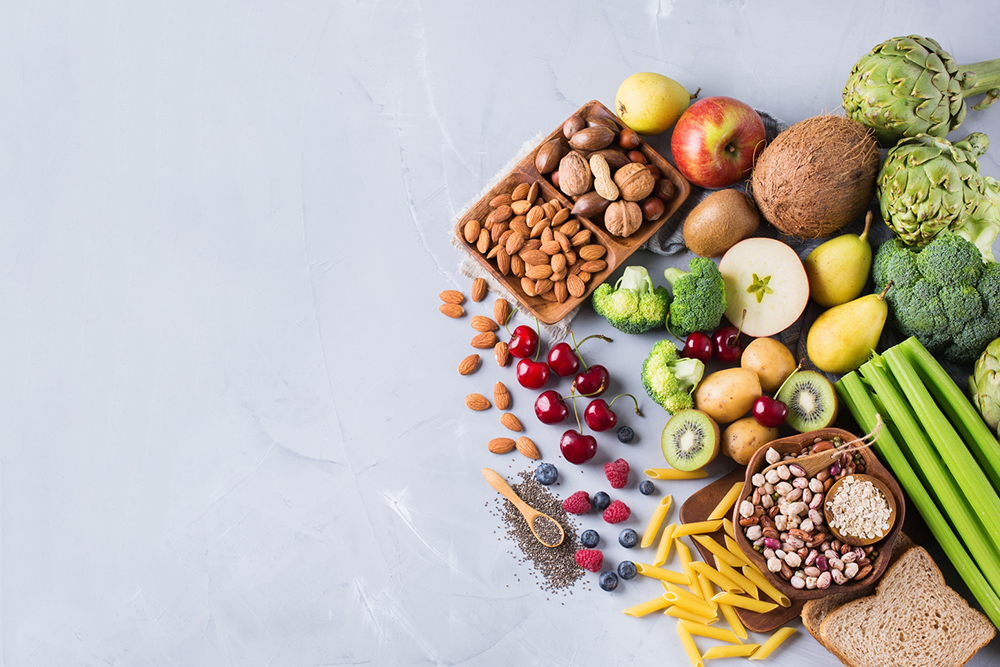Foods to Eat and Avoid for Managing Dementia
Dementia is a common cognitive health condition that affects a large number of seniors. Around 5.6 million people aged 65 and above in the country are estimated to have it. Recently, there also have been an increased number of cases of early-onset dementia in people younger than 65. While there are several treatments to manage the symptoms, maintaining a healthy nutrition plan is also important.

Foods to eat
Consulting a doctor can help one add the right foods to the meal plan and learn about the different food tips to manage dementia and its symptoms better.
1. Berries
These fruits are great for maintaining optimal brain and heart health. They are packed with antioxidants that protect the brain and other vital organs from damage. Blueberries, blackberries, and strawberries can be eaten as snacks, included in desserts, or added to smoothies, cereal, yogurt, or salads. There has been plenty of research that highlights the importance of flavonoids for a healthy life. Berries are full of these antioxidants that help fight oxidative stress and the resulting cognitive decline.
2. Quinoa
Whole grains are a great addition to one’s meal plan to manage dementia. Quinoa, for example, contains complex carbohydrates, vitamin B, and iron, which are essential for a healthy brain. Complex carbohydrates provide energy to the brain and help it function normally, while vitamin B complex and iron assist with memory.
3. Salmon
Rich in omega-3 fatty acids, salmon can be a great addition to one’s nutritional regime for healthy brain development. Fatty fish like mackerel, trout, and sardines can also help meet the recommended omega-3 intake . These fishes contain EPA, an omega-3 acid that protects the brain against damage from inflammation. Fatty fish also contain DHA, which helps maintain the connection between brain cells. DHA is important for maintaining the health of brain cells and cognitive development. Including grilled, steamed, or baked salmon in regular meals provides brain-boosting benefits. Adding mackerel, tuna, or sardines to salads, sandwiches, and whole-grain crackers can make a meal healthier and tastier.
4. Spinach
Rich in vitamin E and folate, spinach is known to help maintain brain health. Folate is a key nutrient that helps lower the amount of homocysteine, an amino acid commonly found in blood. It is believed that people with high homocysteine levels are at a higher risk of dementia. They are also at risk of nerve damage and heart problems. Making spinach a staple green leafy vegetable can help lower the levels of homocysteine and prevent these problems. Other green vegetables like broccoli, kale, and collard can also be added to smoothies, salads, and soups for added benefits.
5. Green tea
Drinking green tea not only keeps one hydrated but also protects against oxidative stress. L-theanine, an antioxidant present in green tea, is particularly beneficial for improving brain health, helping prevent dementia, and crossing the blood-brain barrier to promote relaxation. Green tea is also known to have a calming effect on the brain and boost memory and mood. Having a cup of green tea daily can prevent the brain from cognitive decline, poor memory, and lack of focus. Alternatively, one can also use matcha or add it to their smoothies to experience its benefits. Matcha can act as a replacement for coffee, particularly for individuals who get jittery with coffee.
6. Dark chocolate
Dark chocolate is another brain-boosting food that can be eaten without worry. Chocolates with high cocoa content are considered beneficial for the brain as they contain flavonoids that enhance cognitive function and blood flow. Cocoa also contains theobromine (an antioxidant) and caffeine, both of which are responsible for improved brain activity. Eating dark chocolate can help improve memory, prevent dementia, and enhance concentration and mood. Enjoying a small serving of dark chocolate regularly can provide these benefits.
Foods to avoid
While some foods can improve brain health, others can increase the risk of developing health conditions. Some foods are best avoided to prevent degenerative conditions like dementia.
1. Soda
Sugary beverages like soda, juices, and sports drinks can put one at risk of diabetes, which can be a contributing factor to developing dementia. Individuals who have loved ones suffering from dementia should ensure that the patient is not overeating sweet foods or drinking sweet beverages. Such poor food and lifestyle habits can impact their quality of life in the long run.
2. Fries
Fries almost always appear on the list of foods that can put one at higher risk of developing dementia. Fried food tends to age the body faster. This effect is also seen in brain cells, leading to poor cognitive functioning. If someone is already at high risk, they should avoid all fried foods and speak to their doctor about the guidelines they should follow.
3. Ultra-processed food
Sugar, salt, and unhealthy fats are all unhealthy ingredients found in ultra-processed foods that lead to poor brain health. People who frequently eat these food items are found to be at higher risk of developing brain health conditions like dementia and Alzheimer’s. It can also impact the individual’s cognition and concentration.











